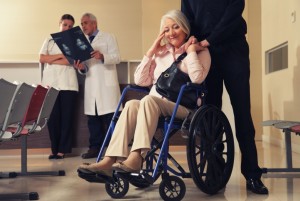Improving Memory Loss After Stroke
Memory loss is a frustrating problem that affects everyone from time to time, however those who suffer from a stroke typically have increased cognitive issues that can be even more life altering than the physical side effects. Depending on which side of the brain the stroke occurs, this can mean short or long term memory loss, trouble learning new information. Issues with sequence and misinterpretation of information. There is typically quite a bit of focus put on getting a person to physically function after a stroke but the issues with memory are not addressed as readily.
Causes and Symptoms of Memory Loss
Memory loss is typically caused by loss of nerve cells in the brain. When this loss is significant enough it is considered dementia. Dementia caused by a stroke, specifically, is called Vascular Dementia. A single large stroke or multiple small strokes can both cause damage.
Those who have suffered from stroke related brain damage may experience any of the following: trouble paying attention, memory loss, trouble speaking and difficulty learning new information. These symptoms can sometimes be missed because other, more prominent issues like depression, blindness and paralysis are covering them.
Memory Improvement Techniques
While cognitive issues will likely persist, there are things you can do or help a loved one do in order to minimize these effects:
- Write It: A simple way of getting a stroke patient to remember things is to have them write information down. This could mean keeping a calendar or appointment book plus an organized journal where they can reference names, phone numbers, and medication schedules.
- Record It: If reading and writing are difficult, a tape recorder can be used instead to record important info. Other audio reminders such as alarms for when a pill needs to be taken can also help.
- Repeat It: When presented with new material repeat it to yourself several times over the course of the day or days.
- See It: When you need to remember something, try to visualize yourself doing it. This works for both something you have already done and for things you still need to do. To better improve your chance of remembering, try to incorporate a unique or weird image in the vision. Such as, if you need to keep a lunch appointment then visualize yourself with the person you need to meet but also with something odd like an elephant or even a talking sandwich.
If you or a loved one find yourself overwhelmed by the changes that take place after a stroke, an in home care worker can often be a good option to get help while still maintaining independence. Visit the Comfort Keepers of Santa Clarita, California website to find out how our in home caregivers can customize a plan to help stroke patients improve memory.
Comfort Keepers
23900 Lyons Avenue
Santa Clarita, CA 91321
661-287-4200

